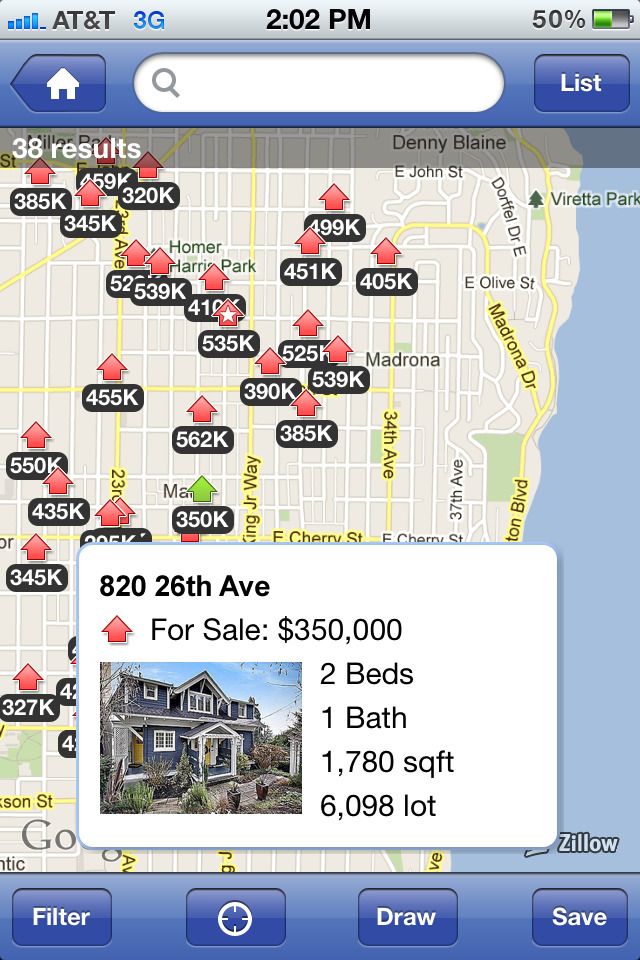When it comes to buying, selling, or renting properties, Zillow has emerged as one of the most prominent names in the real estate industry. As a leading online platform for real estate, Zillow has transformed how people search for homes and interact with the housing market. However, Zillow is not the only player in the game. Numerous other platforms offer similar services, providing users with a wide range of options to explore. In this article, we will delve into Zillow and its competitors, offering insights into their features, benefits, and drawbacks.
The real estate market is highly competitive, and the rise of digital platforms has made it easier for buyers, sellers, and renters to navigate the process. Zillow and similar sites have revolutionized the industry by offering comprehensive information, user-friendly interfaces, and advanced tools that simplify property searches. Whether you're looking for a dream home, an investment property, or a short-term rental, these platforms cater to a wide audience.
In this article, we will explore the features of Zillow and other comparable platforms, helping you make informed decisions about which site best suits your needs. From detailed property listings to market trends and analytics, we will provide you with the tools and knowledge to navigate the real estate landscape effectively.
What is Zillow?
Zillow is a leading online real estate platform that provides users with comprehensive information about properties across the United States. Launched in 2006, Zillow quickly gained popularity due to its innovative approach to property listings, market data, and user-friendly interface. The platform offers a wide range of services, including property listings, Zestimate home value estimates, mortgage calculators, and rental listings.
One of the key features of Zillow is its Zestimate tool, which provides an estimated market value for homes based on various data points, such as location, property size, and recent sales in the area. While Zestimate is not always 100% accurate, it serves as a useful starting point for buyers and sellers looking to understand property values.
Key Features of Zillow
- Property Listings: Zillow offers a vast database of property listings, including homes for sale, rentals, and foreclosures.
- Zestimate: A proprietary tool that estimates home values based on market data and property characteristics.
- Mortgage Tools: Zillow provides mortgage calculators and rate comparisons to help users understand financing options.
- Real Estate Agents: Users can connect with local real estate agents through Zillow.
Why Use Zillow?
Zillow is widely regarded as one of the most reliable platforms for real estate due to its extensive database and user-friendly interface. The platform caters to a broad audience, including homebuyers, sellers, renters, and investors. Its comprehensive features, such as Zestimate, property tours, and market analytics, make it an invaluable resource for anyone involved in the real estate market.
Another advantage of Zillow is its mobile app, which allows users to access property listings and tools on the go. The app includes features like saved searches, property alerts, and virtual tours, making it convenient for users to stay updated on the latest listings.
Similar Platforms to Zillow
While Zillow dominates the real estate market, several other platforms offer similar services and features. These platforms cater to different needs and preferences, providing users with a variety of options to explore. Below, we will discuss some of the top competitors to Zillow.
Redfin
Redfin is a popular real estate platform that combines online tools with professional real estate agents. Known for its transparent pricing model, Redfin offers a full-service experience for buyers and sellers. One of its standout features is the ability to schedule showings directly through the platform, making it easy for users to view properties.
Realtor.com
Realtor.com is another well-known platform that provides extensive property listings and market data. Owned by News Corp, Realtor.com partners with the National Association of Realtors (NAR) to offer users access to a wide network of real estate professionals. The platform also includes features like virtual tours and mortgage calculators, making it a valuable resource for homebuyers and sellers.
Comparison of Zillow and Similar Sites
To help you choose the right platform for your real estate needs, we will compare Zillow with its competitors based on key features, user experience, and pricing.
Features Comparison
- Zillow: Offers property listings, Zestimate, mortgage tools, and real estate agent connections.
- Redfin: Provides full-service real estate services, including professional agents and transparent pricing.
- Realtor.com: Features extensive property listings, virtual tours, and partnerships with NAR.
User Experience
Each platform offers a unique user experience, with varying levels of functionality and ease of use. Zillow is known for its intuitive interface and comprehensive tools, while Redfin focuses on providing a seamless buying and selling process. Realtor.com, on the other hand, excels in offering detailed property information and professional connections.
Market Trends and Analytics
Understanding market trends is crucial for anyone involved in the real estate industry. Zillow and similar sites provide valuable insights into market conditions, helping users make informed decisions. These platforms offer data on property prices, market activity, and economic factors that influence the housing market.
For example, Zillow's Market Trends page provides up-to-date information on home values, rental prices, and market forecasts. Similarly, Redfin and Realtor.com offer analytics tools that allow users to track market trends and identify opportunities for investment.
Challenges and Limitations
While Zillow and similar sites offer numerous benefits, they also have limitations that users should be aware of. One of the primary challenges is the accuracy of property data, particularly with tools like Zestimate. Although these estimates are based on extensive data, they may not reflect the true market value of a property.
Additionally, some users may find the vast amount of information overwhelming, making it difficult to narrow down their search. To address this, platforms like Zillow offer filters and sorting options to help users refine their searches and find properties that meet their specific criteria.
How to Choose the Right Platform
Selecting the right platform for your real estate needs depends on several factors, including your goals, budget, and preferences. Below are some tips to help you make an informed decision:
- Define Your Goals: Determine whether you're looking to buy, sell, or rent a property, and choose a platform that aligns with your objectives.
- Evaluate Features: Compare the features offered by each platform, such as property listings, mortgage tools, and agent connections.
- Consider User Experience: Choose a platform with a user-friendly interface and intuitive navigation.
- Check Pricing: If you're using a full-service platform like Redfin, ensure that the pricing model suits your budget.
Future of Real Estate Platforms
The real estate industry is continually evolving, and online platforms like Zillow are at the forefront of this transformation. Advances in technology, such as virtual reality and artificial intelligence, are reshaping how users interact with property listings and market data. As these platforms continue to innovate, they will likely offer even more advanced tools and features to enhance the user experience.
For example, virtual tours are becoming increasingly popular, allowing users to explore properties from the comfort of their homes. Additionally, AI-driven analytics will provide more accurate market predictions and personalized recommendations for users.
Conclusion
In conclusion, Zillow and similar sites have revolutionized the real estate industry by offering comprehensive tools and resources for buyers, sellers, and renters. Whether you're looking for a new home or seeking investment opportunities, these platforms provide the information and support needed to make informed decisions. By understanding the features and limitations of each platform, you can choose the one that best suits your needs.
We encourage you to explore the platforms discussed in this article and share your experiences in the comments section. Additionally, feel free to browse our other articles for more insights into the real estate market. Together, let's navigate the ever-changing landscape of real estate with confidence and knowledge.
Table of Contents
- What is Zillow?
- Why Use Zillow?
- Similar Platforms to Zillow
- Comparison of Zillow and Similar Sites
- Market Trends and Analytics
- Challenges and Limitations
- How to Choose the Right Platform
- Future of Real Estate Platforms
- Conclusion


